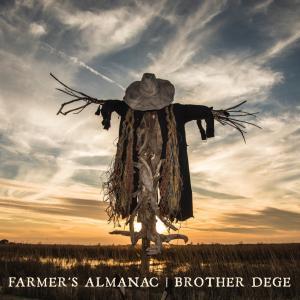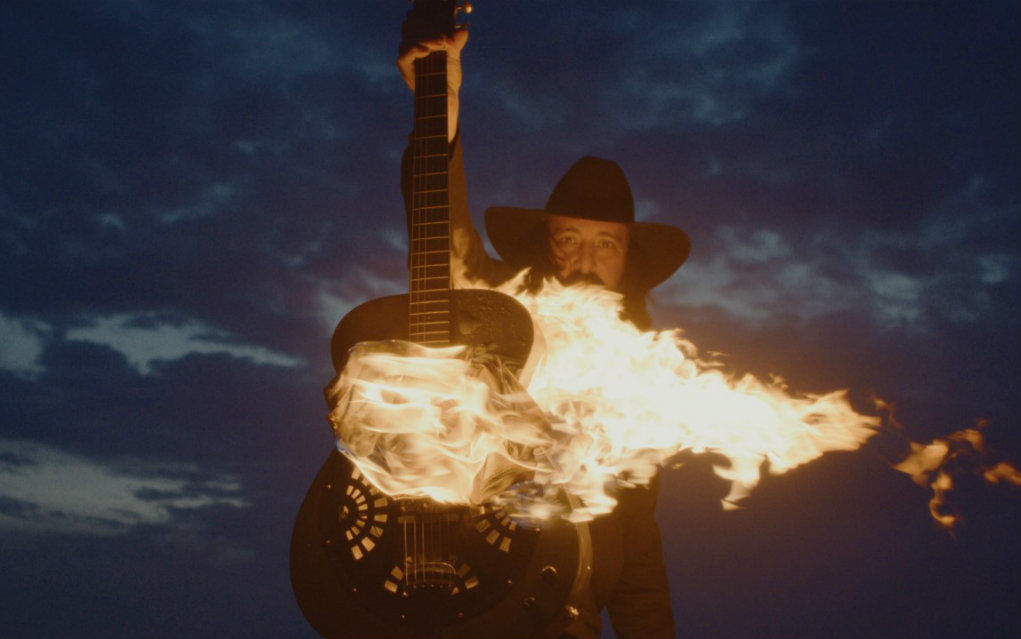 Brother Dege Legg has burned a colorful trail through the Deep South. Much like the Delta Blues originators from whom he draws inspiration, Dege has experienced life in all its duality. Farmer’s Almanac, the Louisiana native’s fourth album, is set for release on June 1st, via Psyouthern Records. If there were a soundtrack for rural Southern America, Farmer’s Almanac is it.
Brother Dege Legg has burned a colorful trail through the Deep South. Much like the Delta Blues originators from whom he draws inspiration, Dege has experienced life in all its duality. Farmer’s Almanac, the Louisiana native’s fourth album, is set for release on June 1st, via Psyouthern Records. If there were a soundtrack for rural Southern America, Farmer’s Almanac is it.
Growing up in Cajun country wasn’t always easy for Brother Dege. He worked sundry odd-jobs, experimented with hallucinogens, and passionately clashed with the small town status quo. He once climbed the Mississippi River bridge in Baton Rouge, fully intent on swan diving into the Big Muddy. Fortunately he had a change of heart, climbing back down and driving himself to rehab, in true outlaw style, in a stolen Camaro.
If any of these allegories sound familiar, it’s for good reason. They could be the backstories of Skip James, Robert Johnson, Son House, or scores of other bluesmen from the early part of the last century. Brother Dege took his own narrative, set it to the haunting slide guitar of those early masters, electrified and modernized it, and presented it in 11 original tracks.
Farmer’s Almanac is cinematic in its scope. Beginning to end, one can envision a Southern Gothic film. From the instrumental overture, “Partial to the Bitters,” to the epilogue of “Partial to the Bitters, Pt. II,” the album tells a story. Not surprising as Brother Dege was nominated for a Grammy® for his song, “Too Old to Die Young,” from the 2010 release Folksongs of the American Longhair. Quentin Tarantino hand-picked that song for the soundtrack of his movie Django Unchained.
The tales told in this newest offering are from the dark side of Americana. Brother Dege let’s us know what’s in store on “Country Come to Town.” His swampy Dobro slide work is punctuated with a foot-stomping rhythm, and his gravelly vocals. “Here I come,” he warns in the lyrics. “From the smallest town on the lowest rung.”
Recorded in the most simplistic Lomax-style, the music of Brother Dege is as authentic as anything that came out the field recordings nearly a century ago. At times the music builds to a point where we weren’t sure if those were drums, or an agrarian percussive engineer banging out the beat on metal trash cans. What’s more is we couldn’t care less. It’s magnificent.
That droning, foot-stomping, late night alleyway rhythm is the foundation of the entire album. From the medium paced songs like “The Early Morn,” “The Shakedown,” and “Bastards Blues,” to the slow-burning “No Man a Slave,” the ever present clock keeps us right on track.
On the nearly eight-minute “The Moon & the Scarecrow,” Brother Dege was able to fool us not once, but twice in thinking the song was ending. There is a haunting instrumental break in the song in which we can hear the creaking of that lonely scarecrow as it stands against the hot, humid Louisiana wind. It’s a rare occurrence when a recorded track sends a shiver down our respective spines. This was one of those times.
The ghosts that haunt the American South, and Brother Dege’s mind, are released in Farmer’s Almanac in the same way Robert Johnson conjured the devil. Depression, small town drama, class structure, and escapism are all explored, and come to life via his pen, and resonator guitar. No Delta Blues music collection is complete without Farmer’s Almanac.
Artist: Brother Dege
Title: Farmer’s Almanac
Label: Psyouthern Records
Release Date: April 27th, 2018 in Western Europe; June 1st, 2018 world-wide.
Running Time: 41:56
*Feature image Brian Richard courtesy of Howlin’ Wuelf Media

